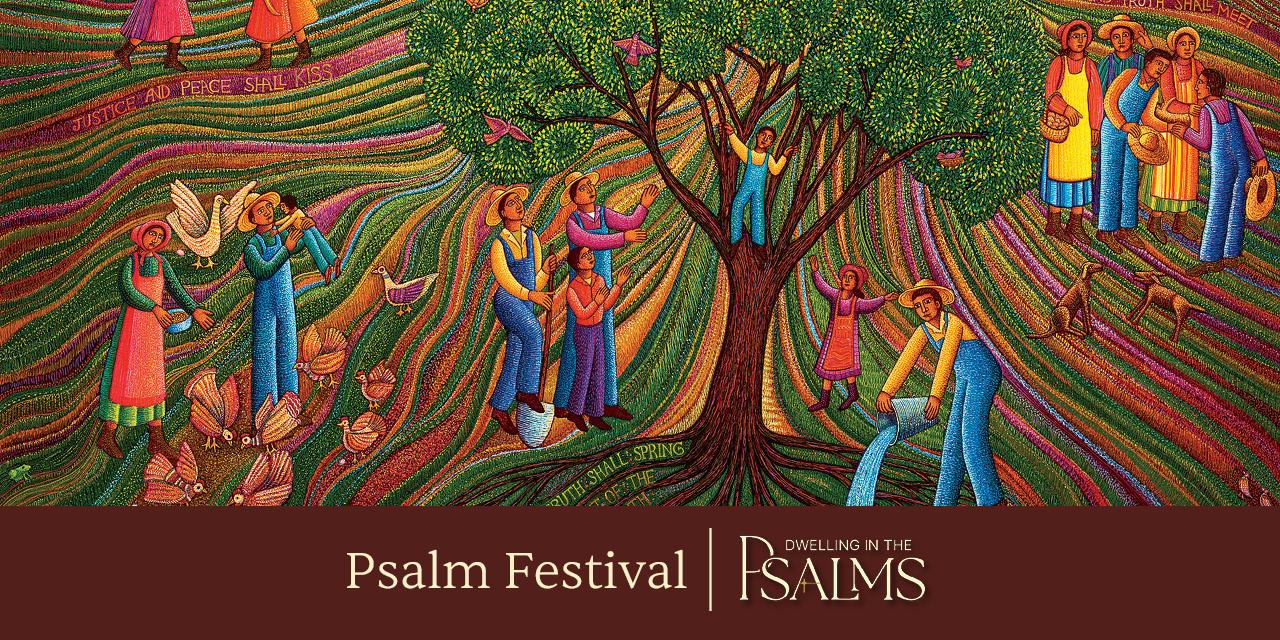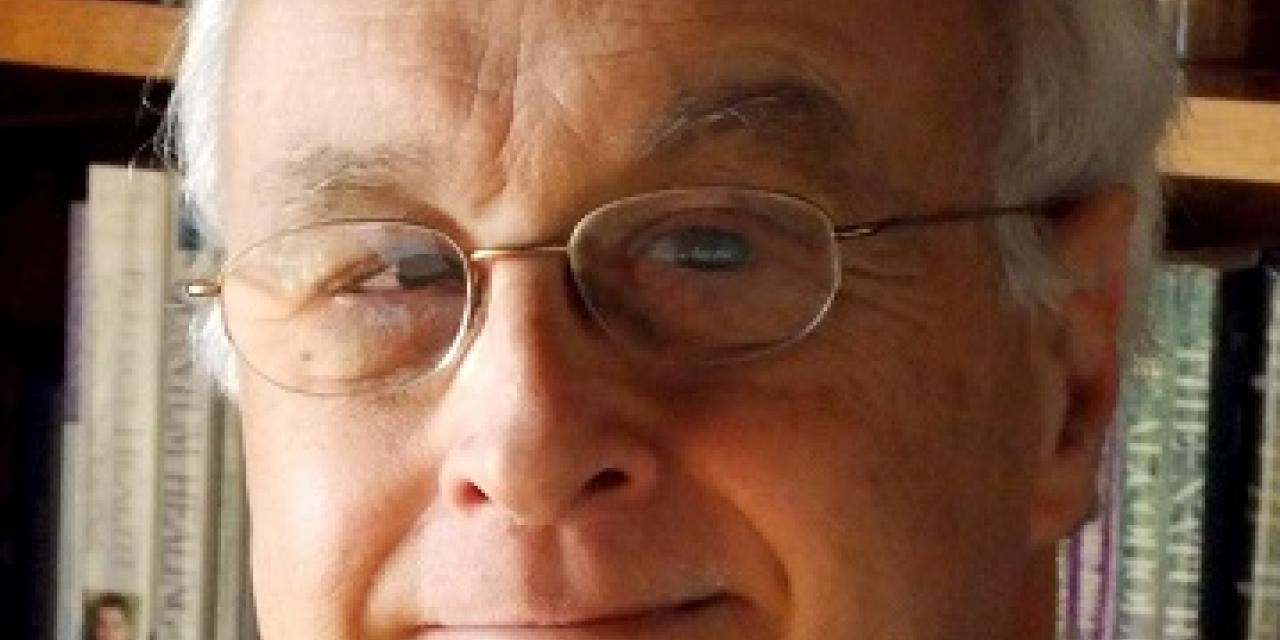
In this Strengthening Preaching conversation series, preachers from a range of Christian traditions and denominations reflect on their growth as preachers through their involvement in the Strengthening Preaching initiative of Lilly Endowment Inc., which is coordinated by the Calvin Institute of Christian Worship. At the heart of the initiative are preaching peer groups, sponsored by various seminaries, which engage preachers in reading, discussion, preaching, and feedback—all within a collegial circle of support.

In this edited conversation, Gregory Heille of Aquinas Institute of Theology talks about passing the torch—creating a global conversation to promote the Dominican charism of preaching among younger members.
Would you tell us about the Dominican Preaching Network? What is this group and how did it get started?
The Dominican Preaching Network began when a German Dominican named Manfred Entrich from the Institute for Pastoral Homiletics in Düsseldorf approached me, as a representative of Aquinas Institute of Theology in St. Louis, to say that we would like to get to know you and collaborate with you.
So over a period of several Februaries, a number of our Aquinas Institute faculty traveled two by two to Augsburg, Germany, to an annual German Dominican theological conference hosted by the Institute for Pastoral Homiletics. Team members from the German institute also came to visit Aquinas Institute; we met each other back and forth.
I happened to be in Augsburg in February 2013 for one of these conferences, and after the conference Manfred and I were traveling together on a train from Munich to Dusseldorf. (The headline in the newspaper that day was the announcement by Pope Benedict that he was going to resign his office and retire. As Benedict was a German, this was huge news in Germany.)
Manfred and I were sitting facing each other in this train car, having a serious conversation because we have equivalent roles in Germany and the United States of being leaders in promoting this Dominican charism of preaching. We were at the time in our mid to late 60s, and we said, “What are we going to do? Are we going to reach a certain age and just turn out the lights, or are we going to begin the work of passing the torch of this project to a next generation?”
We agreed there that we would pass the torch. On that train we agreed to host an international colloquium on Dominican preaching in St. Louis during the Dominican jubilee year in 2016. This would be our way of passing the torch.
We then reached out to a few younger members in Germany and the United States and formed a steering committee that met by video conference every month. We dispatched one of these younger members to another Dominican school, called the Institute of Preaching, in Quezon City in the Philippines, which we were aware of but didn’t know very well. We called this “adding a third leg to our stool.” So we formed a three-legged stool of these three global institutes of preaching. And jointly, as three institutes, we hosted a colloquium in St. Louis called “Go and Do Likewise.” About 70 brothers and sisters of every branch of the Dominican Order participated, from 22 countries, with an emphasis on reaching younger members who would be new to this kind of experience.
We had the Master of the Order, Bruno Cadoré, a French Dominican, as a keynote speaker on the first day. He talked about the preaching mission of the friars of the Order. The next day, Sister Sara Böhmer, an economist from Germany, talked about the preaching mission of the sisters of the Order. And the third day, Mary Erika Bolaños, a Dominican lay woman and professor of theology from the University of Santo Tomas in Manila, talked about the evangelizing mission of the laity of the Order. We also had 20 workshops going. It was a very engaged and profound experience.
Even before that event, our intent was to follow this global colloquium up with three years of regional events every October. The global colloquium was in October of 2016, during the jubilee. In October of 2017, we had the Asia Pacific conference in Manila. Again it was about 70 people from a number of nations, and we focused on the interreligious context of preaching in Asia Pacific. We learned that the interreligious context is very diverse—the Philippines is 86 percent Catholic; Indonesia is 87 percent Muslim; Myanmar is 88 percent Buddhist. We also realized that this one region includes one-third of the land area of the whole world and is home to 60 percent of humanity. It was a fascinating event.
The next event will be in October 2018. This will be the regional colloquium on “Preaching in a Fragile Europe,” a region which also is very diverse. There are regions, like Bavaria and parts of central Europe, that are very religiously engaged. But northern Europe and Scandinavia, a region the German Catholics call the diaspora, is increasingly secular.
The Dominican Order has an international legislative assembly called a General Chapter every four years. Six years ago that assembly was in Trogir in Croatia, and two years ago it was in Rome. In both of those gatherings of friars, the concern was expressed about a growing culture of indifference, especially in Europe and North America—a disengagement of people from religion to atheism, or to being “spiritual but not religious,” with growing numbers of what we call the “nones,” and also with growing numbers of Catholics shifting to Evangelical churches. We see all these different expressions.
What’s next for the Dominican Preaching Network, after the 2018 gathering?
“We’re trying to create a sustainable global and regional conversation about preaching that will raise up new leadership from among younger members.”
We’re starting to plan for the North American regional colloquium, which will be in Adrian, Michigan, in October 2019. Concerns that we’re beginning to see for that conference are how hard it is for Dominicans in North America to speak with one voice because we ourselves as Dominicans in Canada and the United States are geographically, culturally, and ecclesiologically very diverse.
There is a real divide amongst men and women of the Dominican Order vis-à-vis pulpit access and the preaching mission of Dominican men and women, both vowed religious and laity. There is also the fact that many regional congregations of Dominican women have rapidly decreasing numbers because of aging and because young women are not entering in the way they once did. And there are significant and at times divisive issues of feminism involved in that. So we’ll be talking about all of that as we consider our Dominican preaching in a North American context.
The North American colloquium also will address the issue of the growing culture of indifference and religious disaffiliation, and the questions and concerns of the nones in our midst. Our main speaker will be Anthony Gittins, professor emeritus of theology and culture at the Catholic Theological Union in Chicago and author of Called to Be Sent: Co-Missioned as Disciples Today.
Then the thought is to hold the next global colloquium on preaching in October 2020, likely in Manila. We’re trying to create a sustainable global and regional conversation about preaching that will raise up new leadership from among younger Dominican men and women and foster the preaching encounters, broadly speaking, of the Order of Preachers around the world.
LEARN MORE
Explore the Dominican Preaching Network’s website to learn more about upcoming gatherings.
View the talks presented at the 2016 Dominican preaching colloquium in St. Louis.
Read about the Dominican Order’s 800th anniversary celebrations.

